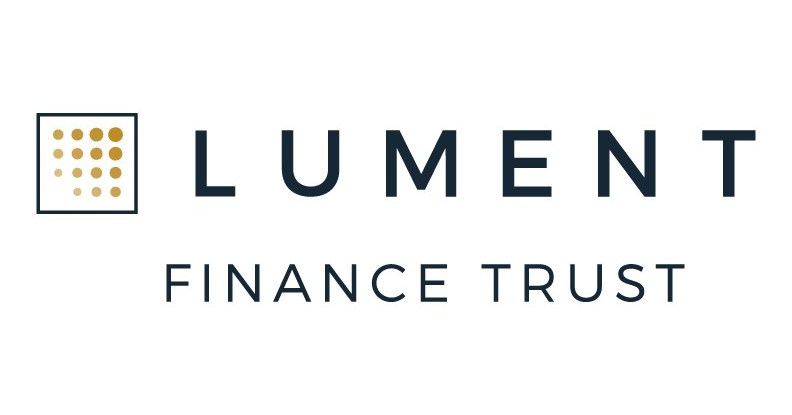Finance
Facilitating access to finance: alternative data is the key

Despite the rapid expansion of financial services, a significant proportion of individuals and small businesses remain financially underserved. This group encompasses “thin file” customers, who have limited or no credit history, women, small and medium enterprises
(SMEs), and young demographics in emerging economies.
The key to ensuring fair and easy access to finance for these populations is through ethical acquisition and utilisation of alternative data, such as behaviour on previous mobile or small loans, telecom and utility data, data on related parties and self-reported
data, all ideally obtainable through credit bureaus. Coupling this with financial education initiatives for the underbanked populations and the development of unbiased predictive models, we can help to significantly enhance financial inclusion and expand access
to finance.
Why do emerging markets need greater access to finance?
57% of the African population don’t have access to a traditional bank account and large numbers of consumers can’t provide
the financial data required for a credit score. In most cases, women face further barriers when it comes to accessing loans. These populations often lack access to financial services because they don’t have enough formal data, they face bias, or they are discriminated
against.
SMEs form the backbone of the global business landscape, representing about
90% of businesses. Unfortunately, they are also less likely to have access to formal bank loans.
With rising inflation and the global economic challenges of recent years, countries should be putting the necessary measures in place to protect their economy. Providing individuals and small companies with easier access to finance means they can grow their
businesses and actively participate in the local economy, creating a healthier and stronger financial ecosystem.
Power of alternative data
Credit scores have traditionally been derived from data obtained from regular consumer bank transactions or prior payment records. Those without these financial facilities are inadvertently disadvantaged when applying for loans.
However, a wealth of alternative data can bridge this gap. The scope extends from someone’s ability to pay their phone and utility bills to data from fintech apps and even social media, each serving as a valuable indicator for lenders to determine loan eligibility.
We’ve already seen considerable progress with the use of mobile payment apps to provide this crucial data needed to make informed lending decisions. In Kenya, for example, financial inclusion has increased from
26% in 2006 to 83% in 2021 with the use of mobile banking apps as a gateway to financial inclusion. These methods can be used as an example to other countries to demonstrate how tapping into alternative data can widen access to finance in emerging economies.
Communication is key
Clear communication between credit bureaus and regulatory bodies is crucial to ensure the correct regulatory framework is in place to allow alternative data to be shared. There also need to be regulations in place to guarantee that alternative data is used
and shared in a safe and ethical manner. Through better communication between financial institutions and regulatory bodies, people’s data can be used in the right way to allow lenders to make informed lending decisions.
Harnessing the power of technology
With such a high volume of alternative data available, financial institutions also need the correct systems in place to organise and analyse data points in an efficient and accurate manner.
One way of doing this is through AI and machine learning models. They can be used to analyse and extract actionable insights from a wide range of unstructured data points drawn from alternative data sources. Moreover, financial institutions need to establish
robust model management frameworks to oversee, control and deploy a wide range of algorithms constructed on alternative data.
Empowering consumers through financial education
Organising financial education programmes designed specifically for underserved communities can enlighten consumers about their options and map a path to financial inclusion. With growing choices for consumers who have limited credit data, it is the responsibility
of governments and financial institutions to provide the correct information and advice to allow consumers to develop the skills and knowledge to make informed decisions.
The use of alternative data, accessible through credit bureaus, is a powerful tool to facilitate access to finance globally. However, there are several steps which need to be taken to ensure this data is securely collected through credit bureaus, correctly
harnessed and shared only with the right parties. By combining the latest AI and machine learning models with effective regulatory communication and education programmes for consumers, financial institutions can use this data more effectively to increase financial
inclusion and create more resilient economies.

Finance
Lument Finance Trust, Inc. Declares Quarterly Cash Dividends for its Common and Preferred Stock

NEW YORK, June 20, 2025 /PRNewswire/ — Lument Finance Trust, Inc. (NYSE: LFT) (“LFT” or the “Company”) announced the declaration of a cash dividend of $0.06 per share of common stock with respect to the second quarter of 2025. The dividend is payable on July 15, 2025, to common stockholders of record as of the close of business on June 30, 2025.
The Company also announced the declaration of a cash dividend of $0.4921875 per share of 7.875% Cumulative Redeemable Series A Preferred Stock. The dividend is payable on July 15, 2025 to preferred stockholders of record as of the close of business July 1, 2025.
James P. Flynn, Chief Executive Officer, said, “We approached this quarter’s dividend decision with thoughtful deliberation and a clear-eyed view of our near-term earnings outlook. We determined it was prudent to adjust the dividend to reflect present realities, preserve book value and support our long-term earnings potential. Our focus remains on maximizing our flexibility, in order to achieve positive asset management outcomes and responsibly manage our liquidity. We believe these efforts will best position us to create long-term value for our shareholders.”
About LFT
LFT is a Maryland corporation focused on investing in, financing and managing a portfolio of commercial real estate debt investments. The Company primarily invests in transitional floating rate commercial mortgage loans with an emphasis on middle-market multi-family assets. LFT is externally managed and advised by Lument Investment Management, LLC, a Delaware limited liability company.
Additional Information and Where to Find It
Investors, security holders and other interested persons may find additional information regarding the Company at the SEC’s Internet site at http://www.sec.gov/ or the Company website www.lumentfinancetrust.com or by directing requests to: Lument Finance Trust, 230 Park Avenue, 20th Floor, New York, NY 10169, Attention: Investor Relations.
Forward Looking Statements
Certain statements included in this press release constitute forward-looking statements intended to qualify for the safe harbor contained in Section 27A of the Securities Act of 1933, as amended, and Section 21E of the Securities Exchange Act, as amended. Forward-looking statements are subject to risks and uncertainties. You can identify forward-looking statements by use of words such as “believe,” “expect,” “anticipate,” “project,” “estimate,” “plan,” “continue,” “intend,” “should,” “may,” “will,” “seek,” “would,” “could,” or similar expressions or other comparable terms, or by discussions of strategy, plans or intentions. Forward-looking statements are based on the Company’s beliefs, assumptions and expectations of its future performance, taking into account all information currently available to the Company on the date of this press release or the date on which such statements are first made. Actual results may differ from expectations, estimates and projections. You are cautioned not to place undue reliance on forward-looking statements in this press release and should consider carefully the factors described in Part I, Item IA “Risk Factors” in the Company’s Annual Report on Form 10-K for the year ended December 31, 2024, which is available on the SEC’s website at www.sec.gov, and in other current or periodic filings with the SEC, when evaluating these forward-looking statements. Forward-looking statements are subject to substantial risks and uncertainties, many of which are difficult to predict and are generally beyond the Company’s control. Except as required by applicable law, the Company disclaims any intention or obligation to update or revise any forward-looking statements, whether as a result of new information, future events or otherwise.
SOURCE Lument Finance Trust, Inc.
Finance
Investors in Apollo Commercial Real Estate Finance (NYSE:ARI) have seen returns of 30% over the past three years

As an investor its worth striving to ensure your overall portfolio beats the market average. But if you try your hand at stock picking, you risk returning less than the market. We regret to report that long term Apollo Commercial Real Estate Finance, Inc. (NYSE:ARI) shareholders have had that experience, with the share price dropping 12% in three years, versus a market return of about 57%.
With that in mind, it’s worth seeing if the company’s underlying fundamentals have been the driver of long term performance, or if there are some discrepancies.
AI is about to change healthcare. These 20 stocks are working on everything from early diagnostics to drug discovery. The best part – they are all under $10bn in marketcap – there is still time to get in early.
While markets are a powerful pricing mechanism, share prices reflect investor sentiment, not just underlying business performance. One way to examine how market sentiment has changed over time is to look at the interaction between a company’s share price and its earnings per share (EPS).
Apollo Commercial Real Estate Finance has made a profit in the past. On the other hand, it reported a trailing twelve months loss, suggesting it isn’t reliably profitable. Other metrics may better explain the share price move.
It’s quite likely that the declining dividend has caused some investors to sell their shares, pushing the price lower in the process. The revenue decline, at an annual rate of 19% over three years, might be considered salt in the wound.
You can see how earnings and revenue have changed over time in the image below (click on the chart to see the exact values).
It’s probably worth noting that the CEO is paid less than the median at similar sized companies. But while CEO remuneration is always worth checking, the really important question is whether the company can grow earnings going forward. So we recommend checking out this free report showing consensus forecasts
As well as measuring the share price return, investors should also consider the total shareholder return (TSR). The TSR is a return calculation that accounts for the value of cash dividends (assuming that any dividend received was reinvested) and the calculated value of any discounted capital raisings and spin-offs. Arguably, the TSR gives a more comprehensive picture of the return generated by a stock. As it happens, Apollo Commercial Real Estate Finance’s TSR for the last 3 years was 30%, which exceeds the share price return mentioned earlier. And there’s no prize for guessing that the dividend payments largely explain the divergence!
Finance
Ísfélag hf. participation in financing of Austur Holding AS in connection with Kaldvik AS share capital increase

Ísfélag hf. (the “Company”), which holds a 29.3% stake in Austur Holding AS (“Austur”), hereby announces its participation in the financing of Austur in relation to Austur’s subscription in a share capital increase of Kaldvik AS, following the approval of an extraordinary general meeting of Kaldvik AS on 19 June 2025.
Kaldvik AS, listed on Nasdaq First North Growth Market and Euronext Growth in Oslo, announced on 5 June 2025 the results of a private placement of 38,011,500 new shares for a total subscription amount of NOK 532 million, equivalent to approximately EUR 46.2 million. Austur was allocated 27,045,027 shares, representing approximately 71.2% of the total allocation, for a total subscription amount of NOK 378.6 million, or approximately EUR 33 million. The allocation of new shares was i.a. subject to approval by the extraordinary general meeting of Kaldvik AS. Furthermore, following the private placement, the purchase by Austur of an additional 860,000 shares in Kaldvik AS was announced on 10 June 2025.
Following shareholder approval of the share capital increase in Kaldvik AS on 19 June 2025, Austur is obliged to settle its allocated portion of the new shares pursuant to the private placement. In accordance with a financing agreement between Austur and its shareholders, Ísfélag will provide financing in connection with the aforementioned transactions in the amount of NOK 341 million (approximately EUR 29.7 million), comprising an equity contribution and in the form of convertible shareholder loans. Following these transactions Austur shareholding in Kaldvik AS will be a 57.35% but was previously 54,06%.
The investment forms part of the Company’s strategy to diversify its revenue streams and to support the continued development of Kaldvik AS.
-

 Arizona3 days ago
Arizona3 days agoSuspect in Arizona Rangers' death killed by Missouri troopers
-

 Technology1 week ago
Technology1 week agoGoogle is shutting down Android Instant Apps over ‘low’ usage
-

 Culture1 week ago
Culture1 week agoSlow and Steady, Kay Ryan’s “Turtle” Poem Will Win Your Heart
-

 Education1 week ago
Education1 week agoOpinion | Artificial intelligence, Trump and the Future: 13 Gen Z-ers Discuss
-

 News1 week ago
News1 week ago‘No Kings’ demonstrators to gather across Greater Cincinnati in opposition to Trump
-

 News6 days ago
News6 days agoAt Least 4 Dead and 4 Missing in West Virginia Flash Flooding
-

 Politics1 week ago
Politics1 week agoFate of Trump's $9.4 billion spending cut package hangs on House GOP moderates
-

 News1 week ago
News1 week agoHow Many Law Enforcement Agencies Are Involved in LA Immigration Protests?
















